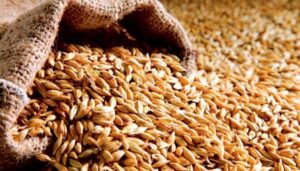
The Portuguese parliament has approved a bill to create a humanitarian visa, the local newspaper Correio da Manhã reports.
The document is reported to allow people who are persecuted in their home countries to obtain a special visa to Portugal in order to apply for political asylum there. Currently, this can be done on a tourist visa, which must be obtained in the country of citizenship or in another country if you have a residence permit.
The procedure for issuing humanitarian visas will now be developed by the parliamentary committee on constitutional issues. The Liberal Initiative party, which drafted the bill, wants to ensure that a humanitarian visa can be obtained at the Portuguese embassy in any country, rather than going home “with all the risks that come with it.”
It is noted that Russians who are being persecuted for “political reasons” will be able to count on the visa, in particular, according to Portuguese deputies.

Former Republican President Donald Trump has an edge over Democratic Vice President Kamala Harris on who would better navigate the country through the Ukraine and Middle East wars, a Wall Street Journal opinion poll of seven battleground states showed.
In overall support, the poll published on Friday showed Harris and Trump tied across the seven states that could decide the November presidential election.
The poll showed Harris with marginal 2 percentage point leads in Arizona, Georgia and Michigan, Trump up 6 points in Nevada and 1 in Pennsylvania, and the two tied in North Carolina and Wisconsin. The poll of 600 registered voters in each state conducted on Sept. 28-Oct. 8 had a margin of error of 4 percentage points in each state.
The neck-and-neck results echo other polls reflecting a tight race before the Nov. 5 election as Americans grapple with concerns about the economy, immigration, women’s rights and the nation’s democratic values in picking between the two candidates.
A Reuters/Ipsos poll this week also found Trump and Harris locked in a close race nationally, with Harris marginally ahead 46% to 43%.
Surveys of swing state voters can be an important indicator given that state-by-state results of the Electoral College will determine the winner, with the seven battleground states likely being decisive.
Harris would win a narrow majority in the Electoral College if she captures the states where she holds an edge in the WSJ’s poll.
According to the WSJ poll, Trump leads Harris in the seven swing states 50% to 39% on who is best able to handle Russia’s war in Ukraine. Trump also has a 48% to 33% lead over Harris on who is better suited to handle the Israel-Hamas war.
More voters said they backed Trump on the economy and immigration while more said Harris would do a better job when it comes to housing, healthcare and caring about people like them, the WSJ poll found.

As of August 31, 2024, 4 million 163.66 thousand non-EU citizens who fled Ukraine as a result of the Russian invasion on February 24, 2022, had temporary protection status in the EU, compared to 4 million 123.88 thousand citizens a month earlier, Eurostat reports.
“Compared to the end of July 2024, the largest absolute increase in the number of beneficiaries was observed in Germany (+11,730; +1.1%), the Czech Republic (+7,275; +2.0%) and Romania (+3,050; +1.8%),” the agency said.
It pointed out that the number of beneficiaries decreased in Poland (-1,015; -0.1%), France (-680; -1.1%) and Luxembourg (-10; -0.3%).
According to Eurostat, despite Germany’s revocation of almost 237,000 temporary protection status in July, it still remains the country with the largest number of them in the EU and the world – 1 million 122,33 thousand at the end of August, or 27.0% of the total number of EU beneficiaries.
It is followed by Poland – 975.19 thousand, or 23.4%, and the Czech Republic – 376.89 thousand, or 9.1%.
In August, after a four-month break, the data on Spain was updated, according to which it remains in fourth place – 215.13 thousand compared to 203.3 thousand at the end of March.
At the same time, Eurostat clarified that the data for Spain, Greece and Cyprus take into account some people whose temporary protection status is no longer valid.
According to the agency, compared to the population of each EU member state, the largest number of temporary protection beneficiaries per thousand people in August 2024 was observed in the Czech Republic (34.6), Lithuania (27.6) and Poland (26.6), while the corresponding figure at the EU level is 9.3.
It is also said that as of August 31, 2024, Ukrainian citizens accounted for more than 98% of the beneficiaries of temporary protection. Adult women accounted for almost half (45.1%) of temporary protection beneficiaries in the EU, children for almost a third (32.3%), while adult men accounted for just over a fifth (22.6%) of the total. A year earlier, the share of women was 46.5%, children 33.9% and adult men 19.5%.
According to the data presented, in July, Italy remained the fifth largest country by the number of refugees from Ukraine with temporary protection status in the EU with 166.80 thousand, which is 0.60 thousand more than in July.
At the end of August 2024, there were also more than 100 thousand such persons in the Netherlands – 116.90 thousand, Slovakia – 125.92 thousand and Ireland – 107.44 thousand.
Between 50 thousand and 100 thousand of them were in Belgium – 83.24 thousand, Lithuania – 79.74 thousand, Austria – 80.27 thousand, Norway – 74.96 thousand, Finland – 66.49 thousand, Switzerland – 66.48 thousand, Portugal – 63.01 thousand, France – 60.67 thousand (data on children are mostly not included – Eurostat) and Bulgaria – 62.51 thousand.
This is followed by Latvia – 46.51 thousand people, Sweden – 43.73 thousand, Hungary – 37.53 thousand, Denmark – 35.79 thousand, Estonia – 33.84 thousand, Greece – 31.48 thousand, Croatia – 25.22 thousand, Cyprus – 21.13 thousand, Iceland – 3.91 thousand, Luxembourg – 3.81 thousand, Malta – 2.13 thousand and Liechtenstein – 0.65 thousand.
Eurostat clarified that all the above data relate to the granting of temporary protection on the basis of EU Council Decision 2022/382 of March 4, 2022, which establishes the existence of a massive influx of displaced persons from Ukraine due to Russia’s military invasion and entails the introduction of temporary protection.
According to updated UNHCR data, the number of Ukrainian refugees in Europe as of September 16 this year was estimated at 6.218 million, and 6.780 million in the world in general, which is 134 thousand and 125 thousand more than a month earlier.

The U.S. Department of Agriculture (USDA) has lowered its forecast for corn exports from Ukraine this marketing year by 1 million tons to 23 million tons due to a 1 million ton decrease in the harvest estimate to 26.2 million tons.
The USDA has also downgraded its estimate of global corn production to 1 billion 217.19 million tons (-1.38 million tons compared to the September forecast) and global corn exports to 190.50 million tons (-0.87 million tons).

The U.S. Department of Agriculture (USDA) has raised its forecast for wheat exports from Ukraine in the 2024/2025 marketing year (MY, July 2024/June 2025) by another 1 million tons to 16.0 million tons.
As stated in the October USDA report on Friday evening, such revision was made due to an increase in the crop estimate from 22.3 million tons to 22.9 million tons, as well as a decrease in the estimate of domestic consumption from 7.0 million tons to 6.7 million tons and transitional residues from 1.09 million tons to 0.99 million tons.
The U.S. agency recalls that last MY the wheat harvest in Ukraine amounted to 23.0 million tons, exports – 18.58 million tons, while corn – 32.5 million tons and 29.6 million tons, respectively.
USDA forecasts world wheat production in the 2024/2025 season at 794.08 (-2.8 million tons to September forecast) and world exports at 215.82 million tons (-0.69 million tons).
The estimate of both world corn production to 1 billion 217.19 (-1.38 million tons to the September forecast) and world exports to 190.50 million tons (-0.87 million tons) has also been downgraded.

The USAID Economic Support for Ukraine Project (USAID Project) has announced the launch of a grant program to compensate at least 20 Ukrainian agricultural logistics companies for 30% of the cost of grain handling equipment from Kobzarenko Plant LLC, the project’s press service reports on Facebook.
According to the report, the USAID support program for Ukrainian agricultural companies provides that the company buys equipment from the manufacturer for 70% of its cost, and 30% is compensated by the USAID Project. Such business support is expected to increase grain export and transshipment capacity by 2.5 million tons per year.
Micro, small and medium-sized enterprises with annual revenues not exceeding the equivalent of EUR40 million can purchase the equipment at a 30% discount.
This program is not available to agricultural holdings and companies that have already received assistance from USAID or will receive it in the near future, the donor organization added.
As part of the support program, companies can purchase equipment that will help improve the efficiency of grain handling processes at all key nodes of the export route, namely: mobile wagon unloader RVM-180, ground reloading bunker BNP-12 “Ark”, belt loader SN-25 in electric version.
The USAID project has expressed its readiness to compensate 30% of the cost of 51 units of equipment from Kobzarenko Plant.